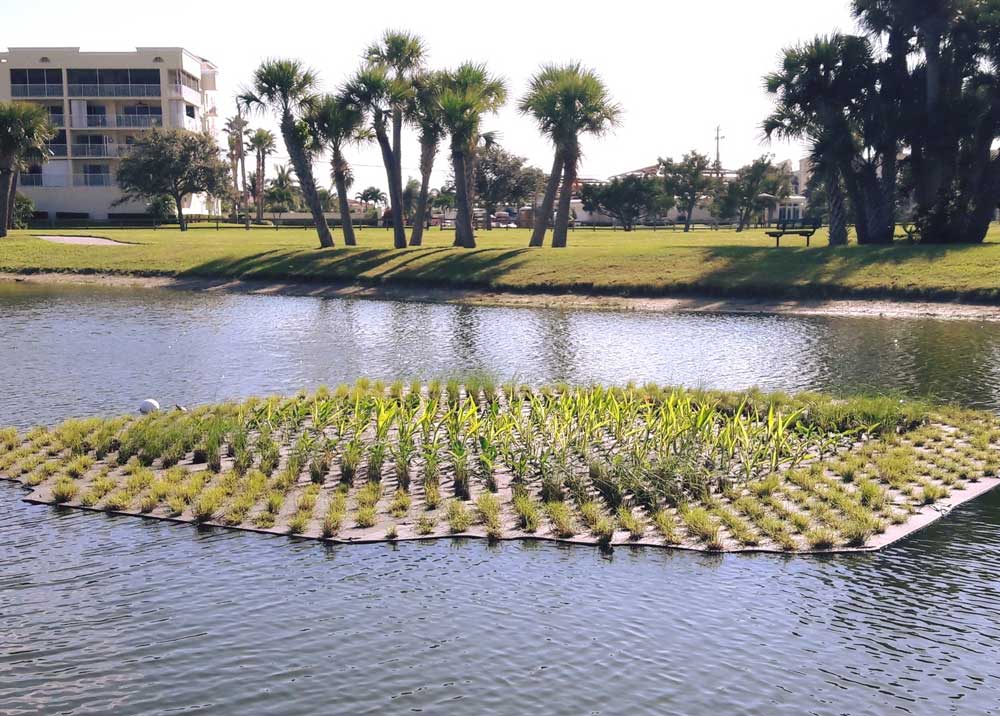
Stetson University’s Institute for Water and Environmental Resilience (IWER) received a Stage 1 Civic Innovation Challenge (CIVIC) planning grant today from the National Science Foundation (NSF) for a project designed to help the City of Cape Canaveral reduce flooding and improve water quality in the face of rising seas. Jason Evans, PhD, IWER’s executive director and associate professor of Environmental Science, is the principal investigator for the project.
Evans is leading a large collaborative team that includes the East Central Florida Regional Planning Council, Florida Sea Grant, Cape Canaveral’s municipal government and multiple other community partners. The overall goal of the project is for the partners to work with Cape Canaveral to implement and carefully measure the performance of nature-based infrastructure – such as rain gardens, constructed wetlands and permeable pavement – in areas with known flooding concerns.
Undergraduate students and community volunteers will assist researchers with the collection and interpretation of field data, providing a regional model for partnership and innovation in climate adaptation.
The CIVIC project builds upon several years of ongoing collaboration between IWER, the East Central Florida Regional Planning Council and Florida Sea Grant to characterize and quantify Cape Canaveral’s substantial flooding challenges. For example, IWER currently maintains a network of three advanced water-level sensors in Cape Canaveral, which together captured critical hydrologic data during several recent flooding events, including Hurricane Ian.
“Like many Florida barrier island communities, Cape Canaveral faces considerable flooding challenges, much of which can be attributed to old stormwater drainage systems that are being impacted by sea-level rise,” according to Evans. “We also know that untreated stormwater runoff is one of the biggest threats to water quality in the Indian River Lagoon and other coastal ecosystems.”
The recent flooding from the rains of Hurricane Ian, which damaged thousands of homes and businesses across inland and coastal areas of east Central Florida, has brought increased attention to Florida’s stormwater management challenges.
Evans continued: “Mimicking natural systems through our stormwater infrastructure is, in my view, by far the most promising approach to reduce flood risk and improve water quality in developed areas of our region. This project with our partners in Cape Canaveral provides a timely opportunity to advance our technical understanding of how nature-based infrastructure works in a coastal environment, while also helping to inform the next generation of stormwater and flood management policy in Florida and beyond.”
IWER is one of 56 teams across the country to receive a $50,000 Stage 1 planning grant through CIVIC, which is funded by NSF in partnership with the U.S. Department of Energy and U.S. Department of Homeland Security.
Over the six-month planning grant period, IWER and partners will hold three community design workshops in Cape Canaveral as part of a process to inform a Stage 2 implementation proposal. The Stage 2 awards, which will be announced next spring, could provide up to $1 million to implement the research-based pilot project and to share the lessons with other communities over a one-year timeframe.
IWER was founded in 2015 with a mission of leveraging Stetson’s interdisciplinary faculty expertise and engaged student learning to inform enhanced stewardship of water and natural resources.





























Linda says
This is amazing!